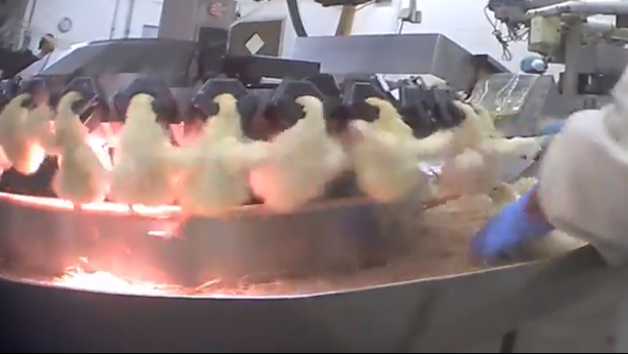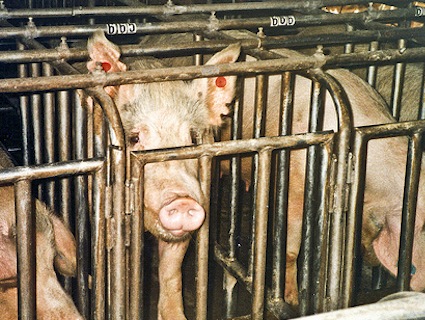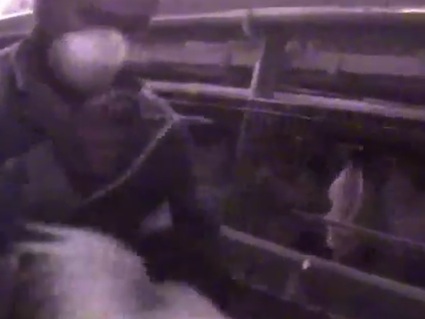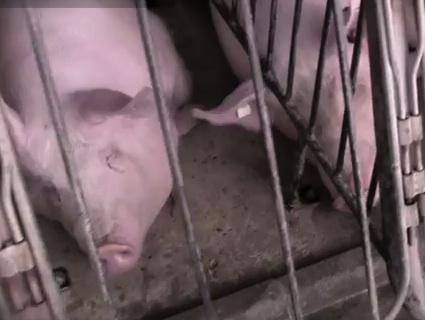
Screenshot from Mercy For Animals' latest video.
There’s no particularly egregious act of cruelty in the above video exposé of a Butterball turkey hatchery in North Carolina—no one stomps a screeching bird, or whacks one with a rod as these videos from 2011 and 2012 show. What the latest undercover video investigation by the animal-welfare group Mercy For Animals reveals is quite banal: the reduction of newborn turkey chicks to assembly-line widgets, material inputs whose result will fill millions of sandwiches. (Butterball raises a fifth of all US-grown turkeys).
We see just-hatched birds dumped onto conveyor belts and whisked along, occasionally getting a limb stuck in factory machinery. The severely injured ones get tossed unceremoniously into the hole of a machine, where, a voiceover informs us, “they’ll be ground up alive.” The surviving ones get lifted by workers into machines that cut off their toes and burn off their beaks. Then it’s on to a truck and off to a factory farm, the voiceover declares.
The suffering we see can’t be blamed on the viciousness of a rogue employee, as often happens after video-captured abuses. (Several Butterball employees were convicted of animal abuse in the wake of earlier Mercy for Animals investigations.) The scandal here lies in the routine practice, not spectacular violence.
It’s something that meat eaters have a right to know about before they bite into a turkey sandwich. And it’s something that the industry is fighting hard to keep out of sight and mind. Last year, the North Carolina legislature introduced a proposal that would criminalize the act of infiltrating a factory farm and documenting what goes on behind closed doors—a classic “ag-gag” bill of the type documented by Ted Genoways in Mother Jones last year. According to Mercy For Animals, the ag-gag provisions have generated major pushback within the state, but could still pass this year.














